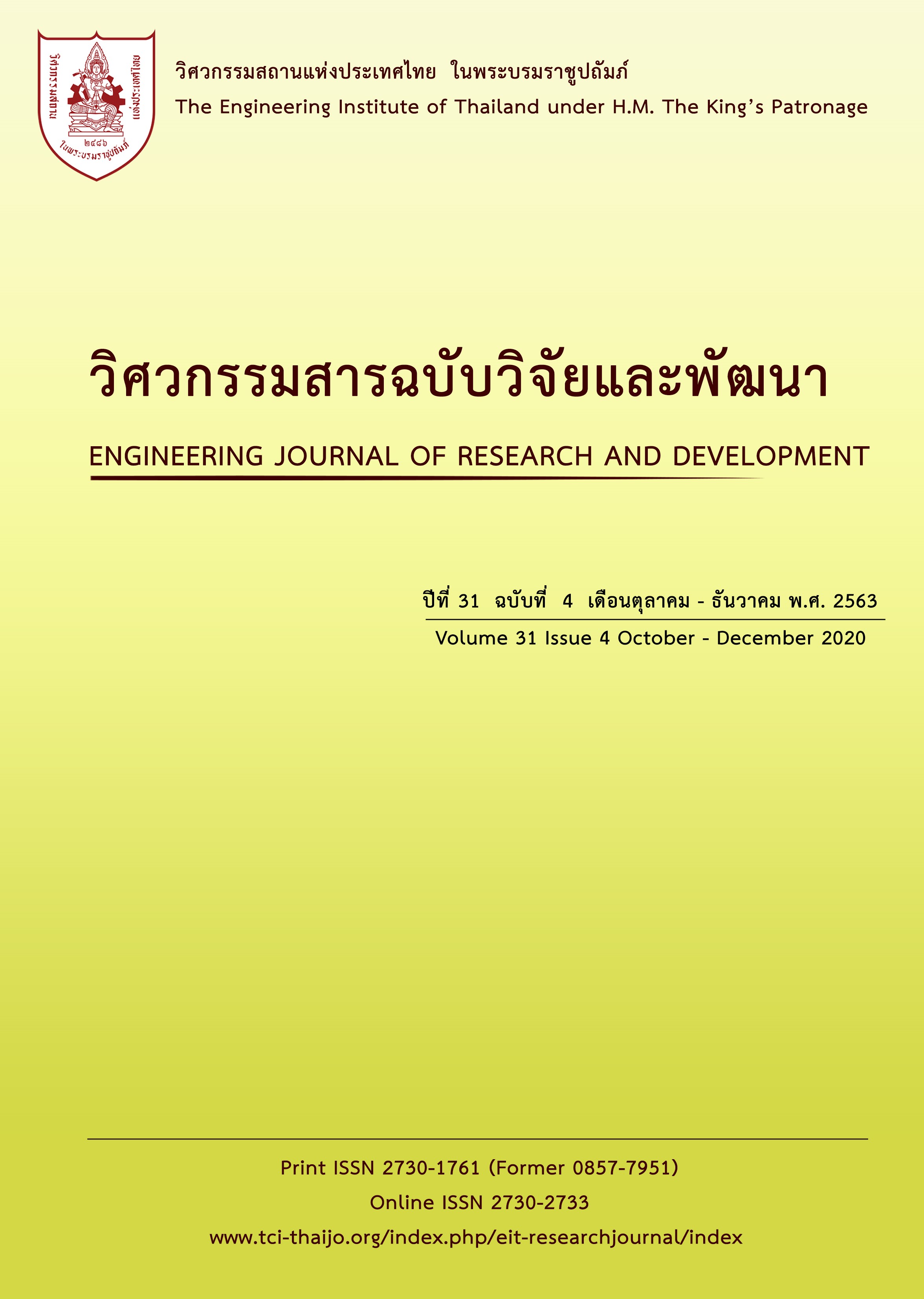BRIQUETTE FUEL PROPERTIES FROM COCONUT SHELL AND COCONUT GREASE WASTE
Main Article Content
Abstract
This research has studied the properties of briquette fuel from coconut shell components and coconut grease waste. The objectives of this study are to examine the optimal proportion and to investigate the fuel properties from coconut grease waste, husk residues and coconut dust by cold-press technique. Pretest set is conducted to compare the better properties and combustion time between dry period 30 and 60 min at the temperature of 105°C. The biomass briquettes are produced using mixing coconut grease waste: coconut dust: husk residues in seven percentages ratios of 70:30:0, 75:15:10, 80:10:10, 85:10:5, 90:8:2, 90:10:0 and 95:3:2. The chemical properties studied included heating value, moisture content, volatile matters, fixed carbon and bottom ash are analyzed according to ASTM standards. The pretest results show the lowest moisture content and longest ignition point time (6-9 min) at 60-min dry period. Therefore, the optimum ratio is investigated at 60-min dry period and indicates that 75: 15 :10 (coconut grease waste: coconut dust: husk residues) is the optimum ratio with 6,660 kcal/kg heating value, 4.00% moisture content, 7.97% fixed carbon, 84.10% volatile matters and 4.00% bottom ash. The heating value of briquette fuel in this study meets the requirement of Thai Community Production Standard 238/2547 which has the standard heating value of charcoal briquette not less than 5,000 (kcal/kg). However, the moisture content value is achieved the standard which should below 8%. Therefore, briquette fuel from coconut shell and coconut grease waste has a higher heating value than briquette charcoal and other biomass charcoal. Therefore, it demonstrates that it can use as a renewable energy and save the environment.
Article Details
The published articles are copyright of the Engineering Journal of Research and Development, The Engineering Institute of Thailand Under H.M. The King's Patronage (EIT).


